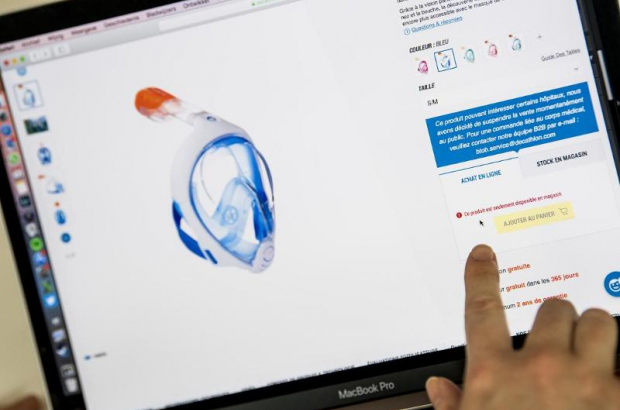- Daily & Weekly newsletters
- Buy & download The Bulletin
- Comment on our articles
Coronavirus: Belgian researchers convert snorkel masks into ventilators and protective masks
Belgian researchers have successfully converted snorkelling equipment into emergency ventilators and protective masks.
The simple and pragmatic inventions by scientists are plugging the shortage of medical equipment following the coronavirus outbreak.
Brussels’ francophone university ULB and Erasmus Hospital in Brussels announced on Saturday that they had successfully developed a breathing respirator adapted from snorkelling masks sold by popular sports chain Decathlon. The inventions were being put into practice at the hospital from Monday.
The hospital joined forces with Endo Tools Therapeutics - a ULB spin-off based in Gosselies - to 3D print a connecting valve between the full-face masks and a ventilator machine.
The adapted masks are used on patients with severe respiratory problems and avoid having to intubate them and put them on a respirator, which can help free up intensive-care beds. The hospital spearheaded the design of a custom-made valve that fits to the top of full-face masks - where the snorkel is meant to go - allowing them to connect to standard machines that feed pressurised air into masks.
Brussels Flemish university VUB announced on Monday that it had transformed Decathlon’s Easybreath full-face snorkelling mask into a protective mask, reports Le Soir.
Around 500 of the connecting parts that it has developed are being distributed in hospitals this week. This will allow for the temporary replacement of FFP2 masks that are needed by frontline medical workers and remain in short supply.
In order to filter air breathed in by the health worker, a medical filter is connected to the plastic adaptor. “One of the major advantages of this mask is that it covers the entire face. It therefore also fulfills the role of protective visor which seems to be sorely lacking. In addition, its surface can be easily cleaned,” said a spokesperson.
"Less comfortable than an FFP2 mask, its use would be preferred for short specific aerosolising technical acts such as intubation,” the university added. The project is led by researcher Albert De Beir of the university’s robotics research centre BruBotics.
The idea to adapt snorkelling masks started in Italy, the country worst-hit by coronavirus in Europe. Other nations have since been developing their own versions.
Photo: Online shopping Decathlon Easybreath snorkelling mask © NUDWTE/Belga

















Comments
This was done a month ago in Italy.
Lots of news articles showing how this has been done in Italy.